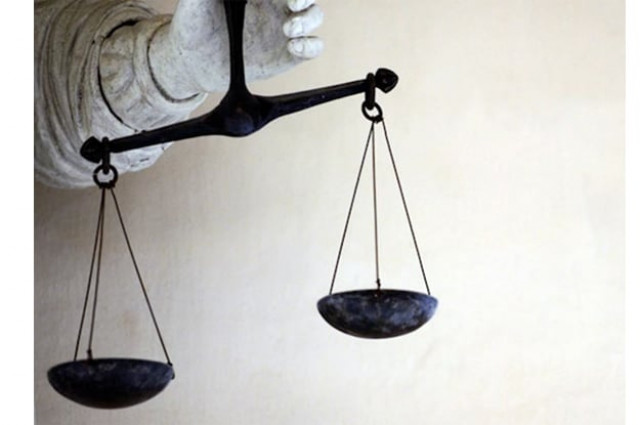Panchayats: the people’s court?
Alternate dispute resolution mechanisms gaining currency world over.

PHOTO: AFP
It is, perhaps, to this effect we often hear the semantic derogation of the word in urban usage. For instance, random hassles that we face in everyday life are often declared ‘Panchayats’ and certain individuals who we deem as a terrible nuisance receive the title of ‘Panchayati’.
India, while abolishing its feudal system after partition, emphasises the development of villages for national growth and strengthened the institute of Panchayat after partition, whereas this was entirely ignored by Pakistan. However, a tentative form of Panchayat system remained operational in some parts of rural Pakistan.
Historically, various efforts have been made to institutionalise Panchayats. Madras Village Councils Act, 1888; Punjab Village Panchayats Act, 1922; Punjab Village Panchayats Act, 1933; Sind Village Panchayats Act, 1939; North-West Frontier Province Village Council Act, 1935; and North-West Frontier Province Village Council Act, 1954, are but a few examples.
In Pakistan, the system did not work, as institutions set up under these statutes were not allowed to evolve naturally and were repeatedly disrupted. At present, no such independent mechanism exists. A comparison with neighbouring India is instructive where the systems of Lok Adalats have evolved over the decades and function effectively.
No court system in the world, no matter how speedy or efficient, can resolve all disputes that arise between members of a vibrant society. This is why legal systems all over the world are investing heavily in developing and referring avenues for alternate dispute resolution (ADR).
One of the reasons why courts are flooded with cases is because over the last few decades, traditional institutions for resolution of disputes such as Panchayats have gradually been eroded.
Part of the reason why existing alternate dispute resolution mechanisms have failed is because they rely exclusively on transplanted legal notions and no efforts seems to have been made to tap into the potential of indigenous, time-tested and localised institutions of dispute resolution such as Panchayats, Jirgas and Mohalla Committees.
India has resorted to ADR through arbitration as well as councils for resolving business disputes and Lok Adalats for resolving petty matters.
The primary responsibility of the state under Article 37 (d) is to provide expeditious and inexpensive justice to citizens through an effective court system. First priority should be to overhaul the lower judiciary so that cases are concluded within a reasonable time.
A detailed comparative study should be conducted on why the institution of Panchayats established through a series of enactments in the past could not perform or evolve.
The Federal Ombudsman is also working on these lines. With an aim to ensure speedy and timely justice to the general public, the ombudsman secretariat has planned to hear public complaints at 138 districts and 435 Tehsils across the country in the days to come.
Among the flaws, it is evident that Panchayat system is often dominated by male members without adequate representation of women. Moreover, Panchayats at times fall prey to unscrupulous judgments.
It is perhaps for this reason that a female jirga was set up in Swat in 2011, when a conclusion was reached that women simply cannot be left at the mercy of male jirgas.
Care must be taken to ensure that referral to Panchayat or any other ADR by courts should not become another tool in the hands of parties who intend to delay court decisions.
If a case is not resolved within a specific time period, it should be returned to the court and declared unfit for settlement or compromise.
Published in The Express Tribune, March 7th, 2016.



















COMMENTS
Comments are moderated and generally will be posted if they are on-topic and not abusive.
For more information, please see our Comments FAQ